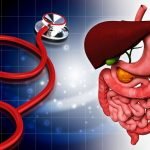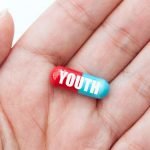The Complexity of Alcoholism
Is a one-size-fits-all Approach to Addiction Realistic?
A recent article by researchers from The Mayo Clinic considered the question: “What drives alcoholics to drink?”1 The answer was perhaps intuitive to some, “a lot of things.” The complexity and varied reasons for drinking behavior complicates long-standing theories on alcohol (and addiction in general) treatment protocols, which, to a large extent, approach the issue from the same perspective with every patient. This research questions whether a “one-size-fits-all” approach to addiction is realistic, especially when it hasn’t seemed to be working in other areas of medicine.
Many Different Factors Drive People to Drink
Alcoholism is a very complicated area of inquiry, as the research study points out. There are a number of different factors driving someone to drink – gender, current mood, and mental health status all play a role. An example, consumption of alcohol by abusers is linked to current feelings, both highs and lows. So, it’s not a low feeling leading to drinking behavior across the board, and in fact, the article points out that men with a history of major depression actually drank less often than men without depression. Generally, a personal history of anxiety or depression had little association with the urge to drink. Gender also seemed to impact the drive to drink; alcohol-dependent women drank less per day than men. Extrapolating on known differences in psycho-social features of gender, including likelihood of experiencing trauma, there is likely a lot more sex/gender differences between men and women in terms of reasons for drinking than discussed in the article.
Alcohol is a Causal Factor in a Large Number of Diseases
The World Health Organization reports alcohol was involved in 25 percent of deaths and disabilities among young adults 20-39 years old. Alcohol is also a causal factors in a large number of diseases, including cancer, heart disease, hypertension, learning and memory problems, and mental health problems. The need to consider treatment protocols which are more targeted, thereby efficient and effective person to person is growing more than ever. This research article’s intention was not to outline the specific reasons for drinking, but to open up the complexity in a scientific way so as to support novel treatments, and advocate a more individualized approach to alcoholism.
Source
- Karpyak V, Geske DK, Hall-Flavin DK, et al. The impact of positive and negative emotional states vs. comorbid depression or anxiety diagnoses on alcohol consumption in male and female alcoholics. European College of Neuropsychopharmacology . 2017
Image Copyright: <a href=’https://www.123rf.com/profile_ocusfocus’>ocusfocus / 123RF Stock Photo</a>
 Node Smith, ND, is a naturopathic physician in Portland, OR and associate editor for NDNR. He has been instrumental in maintaining a firm connection to the philosophy and heritage of naturopathic medicine among the next generation of docs. He helped found the first multi-generational experiential retreat, which brings elders, alumni, and students together for a weekend camp-out where naturopathic medicine and medical philosophy are experienced in nature. Four years ago he helped found the non-profit, Association for Naturopathic ReVitalization (ANR), for which he serves as the board chairman. ANR has a mission to inspire health practitioners to embody the naturopathic principles through experiential education. Node also has a firm belief that the next era of naturopathic medicine will see a resurgence of in-patient facilities which use fasting, earthing, hydrotherapy and homeopathy to bring people back from chronic diseases of modern living; he is involved in numerous conversations and projects to bring about this vision.
Node Smith, ND, is a naturopathic physician in Portland, OR and associate editor for NDNR. He has been instrumental in maintaining a firm connection to the philosophy and heritage of naturopathic medicine among the next generation of docs. He helped found the first multi-generational experiential retreat, which brings elders, alumni, and students together for a weekend camp-out where naturopathic medicine and medical philosophy are experienced in nature. Four years ago he helped found the non-profit, Association for Naturopathic ReVitalization (ANR), for which he serves as the board chairman. ANR has a mission to inspire health practitioners to embody the naturopathic principles through experiential education. Node also has a firm belief that the next era of naturopathic medicine will see a resurgence of in-patient facilities which use fasting, earthing, hydrotherapy and homeopathy to bring people back from chronic diseases of modern living; he is involved in numerous conversations and projects to bring about this vision.










